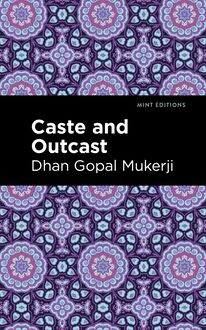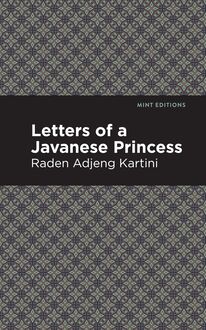-
 Univers
Univers
-
 Ebooks
Ebooks
-
 Livres audio
Livres audio
-
 Presse
Presse
-
 Podcasts
Podcasts
-
 BD
BD
-
 Documents
Documents
-
- Cours
- Révisions
- Ressources pédagogiques
- Sciences de l’éducation
- Manuels scolaires
- Langues
- Travaux de classe
- Annales de BEP
- Etudes supérieures
- Maternelle et primaire
- Fiches de lecture
- Orientation scolaire
- Méthodologie
- Corrigés de devoir
- Annales d’examens et concours
- Annales du bac
- Annales du brevet
- Rapports de stage
La lecture à portée de main
Vous pourrez modifier la taille du texte de cet ouvrage
Découvre YouScribe en t'inscrivant gratuitement
Je m'inscrisDécouvre YouScribe en t'inscrivant gratuitement
Je m'inscrisEn savoir plus
Vous pourrez modifier la taille du texte de cet ouvrage
En savoir plus

Description
Touch Me Not (1887) is a novel by José Rizal. Published in Berlin, the novel was originally conceived as a collaborative project to be written by a group of Filipino nationalist writers living in Madrid. Disappointed in his comrades’ lack of engagement, however, Rizal wrote the novel alone, blending aspects of his own life story with his critique of Spanish imperialism in the Philippines. Banned by Spanish authorities, the novel was smuggled into his home country, where it quickly galvanized Rizal’s fellow nationalists in opposition to the Spanish Empire. Returning home to Laguna province after seven years in Europe, Crisóstomo Ibarra, a young mestizo man, attempts to pick up the pieces following the death of his father. Noticing some hostility from Padre Dámaso, a local curate who had long been a friend of his family, Crisóstomo soon learns that his father’s death may not have been an accident after all. Focusing on his goal of building a school for the local children, Crisóstomo longs to do justice to Don Rafael Ibarra’s legacy. When he goes to visit his grave, however, he is told by the groundskeeper that his father’s body was moved to a local Chinese burial ground following an order by Padre Dámaso. As the story unfolds, a vast web of conspiracy involving Spanish authorities and Filipino revolutionaries threatens Crisóstomo’s life while testing the limits of his loyalty to family and nation alike. With a beautifully designed cover and professionally typeset manuscript, this edition of José Rizal’s Touch Me Not is a classic work of Filipino literature reimagined for modern readers.
Sujets
Informations
| Publié par | Mint Editions |
| Date de parution | 08 juin 2021 |
| Nombre de lectures | 0 |
| EAN13 | 9781513223414 |
| Langue | English |
| Poids de l'ouvrage | 1 Mo |
Informations légales : prix de location à la page 0,0500€. Cette information est donnée uniquement à titre indicatif conformément à la législation en vigueur.
Extrait
Touch Me Not
José Rizal
Touch Me Not was first published in 1887.
This edition published by Mint Editions 2021.
ISBN 9781513299990 | E-ISBN 9781513223414
Published by Mint Editions®
minteditionbooks.com
Publishing Director: Jennifer Newens
Design & Production: Rachel Lopez Metzger
Project Manager: Micaela Clark
Translation by Charles Derbyshire
Typesetting: Westchester Publishing Services
INTRODUCTION
I
“We travel rapidly in these historical sketches. The reader flies in his express train in a few minutes through a couple of centuries. The centuries pass more slowly to those to whom the years are doled out day by day. Institutions grow and beneficently develop themselves, making their way into the hearts of generations which are shorter-lived than they, attracting love and respect, and winning loyal obedience; and then as gradually forfeiting by their shortcomings the allegiance which had been honorably gained in worthier periods. We see wealth and greatness; we see corruption and vice; and one seems to follow so close upon the other, that we fancy they must have always co-existed. We look more steadily, and we perceive long periods of time, in which there is first a growth and then a decay, like what we perceive in a tree of the forest.”
— F ROUDE , Annals of an English Abbey
Monasticism’s record in the Philippines presents no new general fact to the eye of history. The attempt to eliminate the eternal feminine from her natural and normal sphere in the scheme of things there met with the same certain and signal disaster that awaits every perversion of human activity. Beginning with a band of zealous, earnest men, sincere in their convictions, to whom the cause was all and their personalities nothing, it there, as elsewhere, passed through its usual cycle of usefulness, stagnation, corruption, and degeneration.
To the unselfish and heroic efforts of the early friars Spain in large measure owed her dominion over the Philippine Islands and the Filipinos a marked advance on the road to civilization and nationality. In fact, after the dreams of sudden wealth from gold and spices had faded, the islands were retained chiefly as a missionary conquest and a stepping-stone to the broader fields of Asia, with Manila as a depot for the Oriental trade. The records of those early years are filled with tales of courage and heroism worthy of Spain’s proudest years, as the missionary fathers labored with unflagging zeal in disinterested endeavor for the spread of the Faith and the betterment of the condition of the Malays among whom they found themselves. They won the confidence of the native peoples, gathered them into settlements and villages, led them into the ways of peace, and became their protectors, guides, and counselors.
In those times the cross and the sword went hand in hand, but in the Philippines the latter was rarely needed or used. The lightness and vivacity of the Spanish character, with its strain of Orientalism, its fertility of resource in meeting new conditions, its adaptability in dealing with the dwellers in warmer lands, all played their part in this as in the other conquests. Only on occasions when some stubborn resistance was met with, as in Manila and the surrounding country, where the most advanced of the native peoples dwelt and where some of the forms and beliefs of Islam had been established, was it necessary to resort to violence to destroy the native leaders and replace them with the missionary fathers. A few sallies by young Salcedo, the Cortez of the Philippine conquest, with a company of the splendid infantry, which was at that time the admiration and despair of martial Europe, soon effectively exorcised any idea of resistance that even the boldest and most intransigent of the native leaders might have entertained.
For the most part, no great persuasion was needed to turn a simple, imaginative, fatalistic people from a few vague animistic deities to the systematic iconology and the elaborate ritual of the Spanish Church. An obscure Bathala or a dim Malyari was easily superseded by or transformed into a clearly defined Di ó s , and in the case of any especially tenacious “demon,” he could without much difficulty be merged into a Christian saint or devil. There was no organized priesthood to be overcome, the primitive religious observances consisting almost entirely of occasional orgies presided over by an old woman, who filled the priestly offices of interpreter for the unseen powers and chief eater at the sacrificial feast. With their unflagging zeal, their organization, their elaborate forms and ceremonies, the missionaries were enabled to win the confidence of the natives, especially as the greater part of them learned the local language and identified their lives with the communities under their care. Accordingly, the people took kindly to their new teachers and rulers, so that in less than a generation Spanish authority was generally recognized in the settled portions of the Philippines, and in the succeeding years the missionaries gradually extended this area by forming settlements from among the wilder peoples, whom they persuaded to abandon the more objectionable features of their old roving, often predatory, life and to group themselves into towns and villages “under the bell.”
The tactics employed in the conquest and the subsequent behavior of the conquerors were true to the old Spanish nature, so succinctly characterized by a plain-spoken Englishman of Mary’s reign, when the war-cry of Castile encircled the globe and even hovered ominously near the “sceptered isle,” when in the intoxication of power character stands out so sharply defined: “They be verye wyse and politicke, and can, thorowe ther wysdome, reform and brydell theyr owne natures for a tyme, and applye ther conditions to the manners of those men with whom they meddell gladlye by friendshippe; whose mischievous maners a man shall never know untyll he come under ther subjection; but then shall he parfectlye parceve and fele them: for in dissimulations untyll they have ther purposes, and afterwards in oppression and tyrannye, when they can obtain them, they do exceed all other nations upon the earthe.” 1
In the working out of this spirit, with all the indomitable courage and fanatical ardor derived from the long contests with the Moors, they reduced the native peoples to submission, but still not to the galling yoke which they fastened upon the aborigines of America, to make one Las Casas shine amid the horde of Pizarros. There was some compulsory labor in timber-cutting and ship-building, with enforced military service as rowers and soldiers for expeditions to the Moluccas and the coasts of Asia, but nowhere the unspeakable atrocities which in Mexico, Hispaniola, and South America drove mothers to strangle their babes at birth and whole tribes to prefer self-immolation to the living death in the mines and slave-pens. Quite differently from the case in America, where entire islands and districts were depopulated, to bring on later the curse of negro slavery, in the Philippines the fact appears that the native population really increased and the standard of living was raised under the stern, yet beneficent, tutelage of the missionary fathers. The great distance and the hardships of the journey precluded the coming of many irresponsible adventurers from Spain and, fortunately for the native population, no great mineral wealth was ever discovered in the Philippine Islands.
The system of government was, in its essential features, a simple one. The missionary priests drew the inhabitants of the towns and villages about themselves or formed new settlements, and with profuse use of symbol and symbolism taught the people the Faith, laying particular stress upon “the fear of God,” as administered by them, reconciling the people to their subjection by inculcating the Christian virtues of patience and humility. When any recalcitrants refused to accept the new order, or later showed an inclination to break away from it, the military forces, acting usually under secret directions from the padre, made raids in the disaffected parts with all the unpitying atrocity the Spanish soldiery were ever capable of displaying in their dealings with a weaker people. After sufficient punishment had been inflicted and a wholesome fear inspired, the padre very opportunely interfered in the natives’ behalf, by which means they were convinced that peace and security lay in submission to the authorities, especially to the curate of their town or district. A single example will suffice to make the method clear: not an isolated instance but a typical case chosen from among the mass of records left by the chief actors themselves.
Fray Domingo Perez, evidently a man of courage and conviction, for he later lost his life in the work of which he wrote, was the Dominican vicar on the Zambales coast when that Order temporarily took over the district from the Recollects. In a report written for his superior in 1680 he outlines the method clearly: “In order that those whom we have assembled in the three villages may persevere in their settlements, the most efficacious fear and the one most suited to their nature is that the Spaniards of the fort and presidio of Paynaven 2 of whom they have a very great fear, may come very often to the said villages and overrun the land, and penetrate even into their old recesses where they formerly lived; and if perchance they should find anything planted in the said recesses that they would destroy it and cut it down without leaving them anything. And so that they may see the father protects them, when the said Spaniards come to the village, the father opposes them and takes the part of the Indians. But it is always necessary in this matter for the soldiers to conquer, and the father is always very careful always to inform the Spaniards by whom and where anything is planted which it ma
-
 Univers
Univers
-
 Ebooks
Ebooks
-
 Livres audio
Livres audio
-
 Presse
Presse
-
 Podcasts
Podcasts
-
 BD
BD
-
 Documents
Documents
-
Jeunesse
-
Littérature
-
Ressources professionnelles
-
Santé et bien-être
-
Savoirs
-
Education
-
Loisirs et hobbies
-
Art, musique et cinéma
-
Actualité et débat de société
-
Jeunesse
-
Littérature
-
Ressources professionnelles
-
Santé et bien-être
-
Savoirs
-
Education
-
Loisirs et hobbies
-
Art, musique et cinéma
-
Actualité et débat de société
-
Actualités
-
Lifestyle
-
Presse jeunesse
-
Presse professionnelle
-
Pratique
-
Presse sportive
-
Presse internationale
-
Culture & Médias
-
Action et Aventures
-
Science-fiction et Fantasy
-
Société
-
Jeunesse
-
Littérature
-
Ressources professionnelles
-
Santé et bien-être
-
Savoirs
-
Education
-
Loisirs et hobbies
-
Art, musique et cinéma
-
Actualité et débat de société
- Cours
- Révisions
- Ressources pédagogiques
- Sciences de l’éducation
- Manuels scolaires
- Langues
- Travaux de classe
- Annales de BEP
- Etudes supérieures
- Maternelle et primaire
- Fiches de lecture
- Orientation scolaire
- Méthodologie
- Corrigés de devoir
- Annales d’examens et concours
- Annales du bac
- Annales du brevet
- Rapports de stage

















